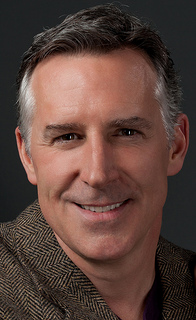How HPV and Oral Cancer are Related
November 24th, 2022

Did you know that Human Papilloma Virus (HPV) and oral cancer are linked? This information may prevent you or a loved one from suffering from oral cancer if a diagnosis is made early. Drs. Peter Vogel, Vijal Vadecha and our team want you to understand how you can prevent the spread of oral cancer and protect yourself if you have HPV.
People don’t often speak up about this common virus, but we believe it’s important to educate yourself to prevent the potential spread of oral cancer. According to the Centers for Disease Control and Prevention, up to 80% of Americans will have HPV infections in their lifetime without even knowing it. Symptoms usually go unnoticed, though it’s one of the most common viruses in the U.S. The body’s immune system is generally able to kill the HPV infection without causing any noticeable issues. If you think you might have HPV, talk with primary care physician about getting the preventive vaccine or taking an HPV test.
According to the Oral Cancer Foundation, “HPV is the leading cause of oropharyngeal cancers (the very back of the mouth and throat), and a very small number of front of the mouth, oral cavity cancers. HPV16 is the version most responsible, and affects both males and females.”
Common signs of oral cancer may include:
- Ulcers or sores that don’t heal within a couple of weeks
- Swelling, lumps, and discoloration on the soft tissues in the mouth
- Difficult or painful swallowing
- Pain with chewing
- Persistent sore throat
- Numbness of the mouth or lips
- Lumps felt on the outside of the neck
- Constant coughing
- Earaches on one side of your head
If you experience any of these side effects, please contact Daisy Mountain Dentistry as soon as possible.
We hope this information will help you understand the interactions between HPV and oral cancer. Please remember to take precautionary steps if you notice anything out of the ordinary with regard to your oral health. If you have any questions or concerns, contact our Anthem office.
Recovering from Oral Surgery
November 24th, 2022

If you need oral surgery, Drs. Peter Vogel, Vijal Vadecha and our team will use our expertise and training to ensure that you have the best possible surgical outcome. And we want to make sure you have the best possible outcome for your recovery as well. Here are a few of the most common aftercare suggestions for making your healing as comfortable and rapid as possible.
- Reduce Swelling
Ice packs or cold compresses can reduce swelling. We’ll instruct you how to use them if needed, and when to call our Anthem office if swelling persists.
- Reduce Bleeding
Some amount of bleeding is normal after many types of oral surgery. We might give you gauze pads to apply to the area, with instructions on how much pressure to apply and how long to apply it. We will also let you know what to do if the bleeding continues longer than expected.
- Reduce Pain or Discomfort
If you have some pain after surgery, over-the-counter pain relievers such as ibuprofen might be all that you need. We can recommend those which are best for you. If you need a prescription for pain medication, be sure to take it as directed and always let us know in advance if you have any allergies or other reactions to medications.
- Recovery-friendly Diet
Take it easy for the first few days after oral surgery. Liquids and soft foods are best for several days following surgery. We will let you know what type of diet is indicated and how long you should follow it depending on your particular procedure. We might, for example, recommend that you avoid alcohol and tobacco, spicy, crunchy, and chewy foods, and hot foods or beverages for several days or several weeks.
- Take Antibiotics If Needed
If you have been prescribed an antibiotic, be sure to take it as directed. If you have any allergies to antibiotics, let us know in advance.
- Protect the Wound
Do NOT use straws, smoke, or suck on foods. Avoid spitting. Part of the healing process can involve the formation of a clot over the surgical site which protects the wound. If the clot is dislodged by suction or spitting, it can prolong your recovery time, or even lead to a potentially serious condition called “dry socket.”
- Maintain Oral Hygiene
Depending on your surgery, we might recommend that you avoid rinsing your mouth for 24 hours, use salt water rinses when appropriate, and keep away from the surgical site when brushing. It’s important to keep your mouth clean, carefully and gently.
- Take it Easy!
Rest the day of your surgery and keep your activities light in the days following.
These are general guidelines for recovery. If you have oral surgery scheduled, we will supply you with instructions for your specific procedure, and can tailor your aftercare to fit any individual needs. Our goal is to make sure that both your surgery and your recovery are as comfortable as possible.
Dental Veneers
November 16th, 2022

Are you looking to improve the appearance of your front teeth? Dental veneers are widely used to improve the appearance of front teeth and are a much more conservative option than a full dental crown. Veneers can be used to improve the appearance of staining, large gaps, large fillings, chipped teeth, or overall shape. Veneers are a thin covering over the front and biting end of the tooth used to restore the beauty of a smile. Over the years we have helped many patients who opted for veneers and now have the confidence to smile again.
Dental veneers are made in a lab from long-lasting porcelain materials. The shade can be chosen to a desirable color to whiten the appearance of your smile. Dental veneers are usually placed on the anterior, or front teeth, where the chewing forces are not as hard as the back teeth. The process of placing veneers is relatively easy requiring only two dental appointments. In some cases, only one appointment is needed. It depends on the fabrication process.
The first appointment is to “prep” the teeth and take an impression to be sent to a lab to fabricate the veneers. Veneers are fairly conservative in the preparation as it requires a small amount of space to be created on the face (front), bottom, and sides of each tooth to allow space for the veneer to be placed and look natural. You will leave the office with temporary veneers for the next week or two while the permanent veneers are being made.
The second appointment is to place the veneers and make minor adjustments if needed. What a difference it makes in the appearance of the teeth! If you’re interested in learning more, give Drs. Peter Vogel, Vijal Vadecha a call today!
Diet and Dental Health: What to eat and what to avoid
November 9th, 2022

You are probably aware that guzzling soda and drinking those sugary Starbucks Frappuccinos aren’t particularly good for your dental health. But how much thought do you give to the effects of your diet on your teeth? Practicing healthy eating habits isn’t just helpful for your waistline, it also ensures that your teeth stay strong and cavity-free.
How diet affects dental health
Our team at Daisy Mountain Dentistry will tell you that your mouth is a complicated place on a microbiological level. Harmful bacteria form dental plaques which convert the sugars in food to acids that wear away at tooth enamel. Meanwhile, saliva washes away some of the detrimental acids, while minerals work to rebuild where teeth are damaged. The foods you eat are important for managing this balancing act between harmful bacteria and helpful rebuilding agents.
Rethinking your diet to prevent cavities
Carefully considering your dietary choices is a smart way to become mindful of the foods you eat and how they affect oral health.
Foods to eat
- Calcium- and phosphorus-rich foods. We’ve all heard that milk builds strong bones, and your teeth are included in that. Milk, cheese, nuts, and chicken are strong sources of calcium and phosphorus. These minerals are used to repair damage to the teeth’s enamel.
- Crunchy fruits and vegetables. Biting into an apple stimulates saliva flow, which washes harmful acids from the surface of your teeth. Turn to other crunchy fruits and vegetables, including carrots, celery, pears, and lettuce, to increase saliva production.
- Sugar substitutes. If you have a sweet tooth but want to decrease tooth decay, sugar substitutes such as Stevia or Equal provide a sugary kick without harming your teeth.
Foods to avoid
- Sugary snacks. Cookies, cakes, candies, and other sugary treats provide a feast for the acid-producing bacteria in your mouth. Furthermore, these foods often get stuck in the ridges of your teeth, and provide a breeding ground for new bacteria.
- Acidic fruits and vegetables. Foods high in acidity, such as tomatoes, citrus fruits, berries, peaches, and lemons, wear away the enamel of your teeth. Because these foods can be part of a healthy diet, remember to brush after eating them or swish with a mouth rinse to protect your teeth.
Eating well is an essential part of keeping your teeth healthy. Consult Drs. Peter Vogel, Vijal Vadecha about your diet for tips on food habits that keep your teeth strong and cavity-free. For more information about the link between your diet and your oral health, or to schedule an appointment with Drs. Peter Vogel, Vijal Vadecha, please give us a call at our convenient Anthem office!


